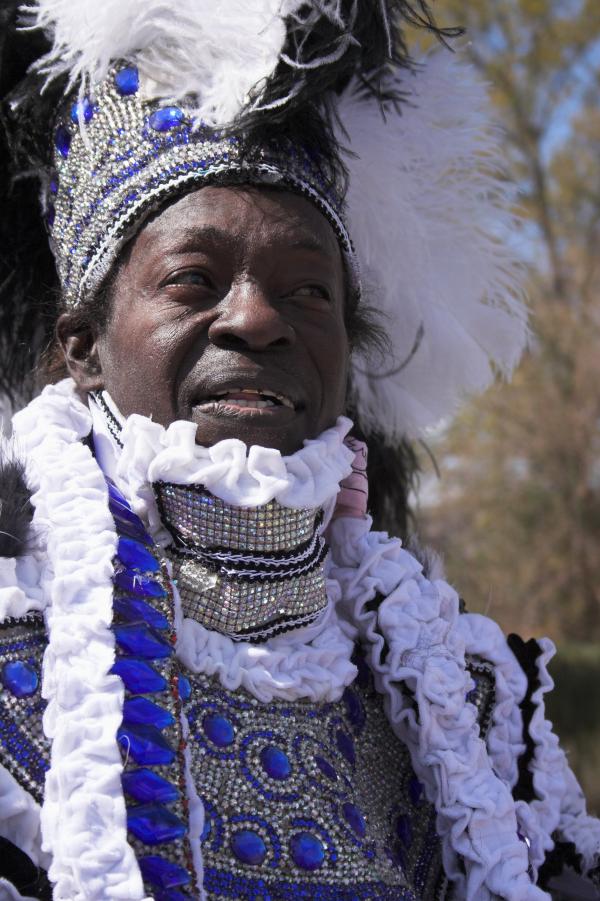Bo Dollis

Photo by Derek S. Bridges
Bio
A leader of the Mardi Gras Indian tribe the Wild Magnolias for more than 45 years, Theodore Emile "Bo" Dollis has taken the music and traditions of New Orleans from community gatherings to festivals and concert halls in cities all over the world, including New York City, London, Nice, and Berlin.
Widely believed to have started in the late 1800s as a way of honoring Native-American traditions, Mardi Gras Indian tribes are made up of neighborhood groups. Each year, the participants create handmade elaborate, vibrant costumes with intricate beadwork that take up to a year to create.
Dollis was born in New Orleans in 1944. While growing up in the Central City, behind St. Charles Avenue's grand mansions, Dollis became interested in the tradition of the New Orleans Mardi Gras Indians and in high school he secretly began attending Sunday night Indian practice in a friend's back yard. He followed the White Eagles tribe, playing and singing the traditional repertoire, and in 1957, he masked (created and wore his suit) for the first time with the Golden Arrows. Not telling his family of his involvement with the Indians, he made his suit at someone else's house and told his parents he was going to a parade. Hours later, his father discovered him underneath a crown of feathers.
In 1964, Dollis became Chief of the Wild Magnolias, a tribe named in honor of Magnolia Street in New Orleans' uptown/mid-city area. Dollis went on to gain notoriety with his handcrafted suits for Mardi Gras and St. Joseph's Day but in addition to his skills as a craftsman, Dollis is also known for his vocal artistry. He recorded the seminal albums They Call Us Wild and The Wild Magnolias, which merged the Mardi Gras Indian sound with New Orleans funk and rhythm-and-blues. In 1970, the Wild Magnolias performed at the first New Orleans Jazz and Heritage Festival along with Monk Boudreaux, Chief of the Golden Eagles. The Wild Magnolias have performed both nationally and internationally, including Carnegie Hall in New York City and the Smithsonian Folklife Festival in Washington, DC. Dollis has also worked with seminal New Orleans artists such as Allen Toussaint, Earl King, Snooks Eaglin, Willie T, among many others.
Although the uptown/mid-city area was devastated by Hurricane Katrina, Dollis opened a club there, named Handa Wanda's after one of the chants, where tribal members can congregate, work on costumes, and practice chanting and singing.

Photo by J. Nash Porter

